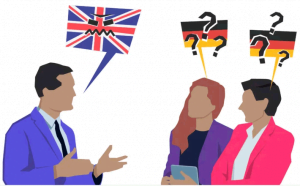Chatbots FOR HOTELS
About the industry
Despite the tourism industry being severely impacted by the global coronavirus (COVID-19) pandemic that began in early 2020 and is still ongoing, it’s showing slight growth in 2022 compared to 2020. At the same time, the pandemic has been accelerating a few trends, and automation is one of them (like contactless payment, food ordering, using robots, etc.)
The digitization of the hospitality industry has been underway for decades, but the past two years have accelerated tech adoption in hotels across the world. The latest surveys reveal that nearly 78% of hoteliers plan to increase their investment in hotel tech in the next three years. One of the top five most important points for tech is the digital guest journey.
Pains and challenges
Waiting for Check-In
Automated check-in at hotels is much faster than standing in line to be checked in by front desk staff. Guests often wonder why low-cost airlines provide tools to do everything online, while in a hotel it’s common to have to wait.


Language Barriers
A lot of tourists try to avoid interaction with reception due to a lack of spoken language knowledge. This leads to some customer needs not being met, or simply a reduction in additional services purchased. Also, sometimes the customer is not able to explain their issues.
Customer Loyalty
When expectations are not met, customers can be very vocal about their dissatisfaction, complaining to staff, writing negative reviews, and posting complaints on social media. For preventing such cases, a hotel should be attentive to their guests’ needs 24/7.


Personal Attention
Guest experience is the top priority for the hospitality sphere. Personal interaction with clients is highly important. For this purpose, hotels require a way to programmatically collect guests’ data, so that hotel staff can access and leverage it in real-time in different areas.
Chatbots for hotels use cases
Check-in and check-out
Online check-in is a feature of automation that enables guests to access their room according to their own convenience. Automation eliminates the need for any human interface, and check-in and check-out can be performed any time of the day with the familiar messaging app. Guests can check into or out of the hotel using their mobile devices, allowing them to skip the line at the front desk.
ordering Services
Using a smart chatbot allows clients to make simple service requests without any language barrier and without the need to call reception. With just a few clicks, customers can order meals to their room, request additional room services, and reserve some hotel facilities. Hotels can inexpensively implement chatbots that understand a variety of languages.
Complaints
In a competitive environment, it’s crucial to handle client complaints quickly and effectively to avoid further problems and bad reviews. With chatbots, the customer can raise a complaint easily, and hotel management can track what is going on and react quickly if needed. Using chatbots for customer care allows for minimizing issues by addressing them in the early stages.
Information Services
Hotel customers often have a lot of questions related to services, nearby places, or facility and restaurant hours. A chatbot can answer these questions within a second using the customer-preferred language. When integrated with the hotel management system, a chatbot can also provide personal answers, like bill status.
Feedback and promotions
During a customer stay, you can track customer satisfaction by doing some proactive interaction with guests. It’s also useful to engage customers and increase loyalty with promotions via chatbot. You can greet them personally using the bot, and ask them about their opinion.